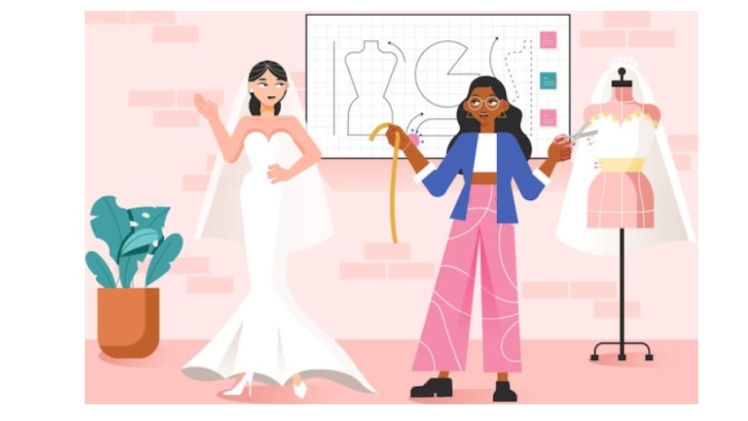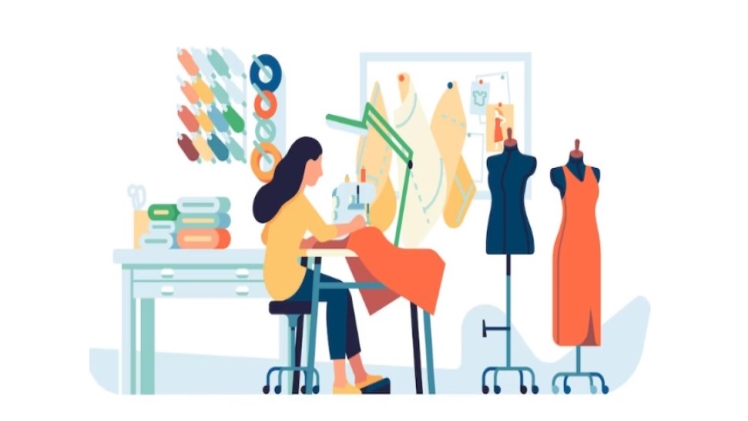Fashion shows are glamorous events that showcase the creativity, artistry, and style of the fashion industry. Behind the scenes of these spectacular runway presentations, there is a team of professionals responsible for the successful production and management of the event. Fashion show production and event management play a crucial role in bringing the designer’s vision to life, ensuring a seamless and memorable experience for the audience.
If you aspire to be a part of this dynamic field and have a passion for fashion, pursuing a fashion design diploma and learning how to become a fashion designer can be your pathway to entering the exciting world of fashion show production and event management.
Understanding Fashion Show Production
Fashion show production involves the coordination and execution of various elements to create a visually stunning and captivating event. It encompasses everything from selecting the venue, designing the runway layout, organizing rehearsals, managing backstage operations, and coordinating the technical aspects such as lighting and sound. A fashion design diploma provides aspiring fashion show producers with a comprehensive understanding of the key components involved in the production process. Through coursework and practical experiences, students learn about event planning, logistics, budgeting, marketing, and communication skills necessary for successful fashion show production.
The Role of Event Management in Fashion Shows
Event management is a crucial aspect of fashion show production. It involves overseeing the entire event, from initial planning to post-show evaluation. Fashion designers rely on skilled event managers to ensure that the show runs smoothly, creating a seamless experience for both the audience and the designers themselves. Event managers handle tasks such as venue selection, budgeting, sponsorship coordination, ticketing, marketing and promotion, guest management, and overall logistical coordination. A fashion design diploma equips individuals with the knowledge and skills required to manage and execute fashion events effectively, ensuring that every aspect of the show aligns with the designer’s vision.
Collaborating with Designers and Creative Teams

In fashion show production and event management, collaborating with designers and creative teams is a fundamental aspect. Fashion designers have a specific vision and aesthetic for their collections, and it is the role of the event management team to translate that vision into a tangible and impactful show. This collaboration involves close communication, understanding the designer’s brand identity, and ensuring that all elements, from the set design to the music selection, align with the designer’s creative direction. A fashion design diploma provides individuals with insights into the fashion industry, allowing them to better understand designers’ perspectives and effectively collaborate with creative teams to bring their visions to life.
Managing Logistics and Operations
Logistics and operations management are vital to the success of a fashion show. This includes handling aspects such as venue selection, stage design, seating arrangements, backstage management, model coordination, dress rehearsals, and overall event flow. Event managers with a fashion design diploma possess the knowledge and skills to handle these logistical challenges effectively. They understand the intricacies involved in managing a large-scale event, ensuring that all elements are synchronized and executed flawlessly. From coordinating the arrival of models and dressing them backstage to managing the flow of garments on the runway, event managers play a critical role in the smooth execution of the fashion show.
Creating Memorable Experiences
Fashion shows are not just about showcasing garments; they are immersive experiences that leave a lasting impression on the audience. Event managers aim to create a memorable experience by paying attention to details, incorporating innovative concepts, and ensuring a seamless flow throughout the show. They work closely with lighting and sound designers, set designers, and other creative professionals to create an atmosphere that enhances the designer’s collection and captivates the audience. With a fashion design diploma, individuals gain the knowledge and skills necessary to curate extraordinary experiences that engage and excite the audience, making the fashion show a memorable event.
Managing Timelines and Deadlines
One of the key responsibilities of fashion show production and event management is managing timelines and deadlines. From the initial planning stages to the day of the event, there are numerous tasks and milestones that need to be met. Event managers with a fashion design diploma are equipped with the organizational skills and project management expertise to create realistic timelines and ensure that all tasks are completed on schedule. They work closely with the entire team, including designers, models, stylists, and technicians, to coordinate rehearsals, fittings, and other essential preparations. By effectively managing timelines and deadlines, event managers contribute to the smooth execution of the fashion show.
Conclusion
Fashion show production and event management are integral parts of the fashion industry. By pursuing a fashion design diploma and learning how to become a fashion designer, individuals can gain the necessary skills and knowledge to enter the field of fashion show production and event management. With a comprehensive understanding of the production process, logistics management, collaboration with designers and creative teams, and the ability to create memorable experiences, fashion show producers and event managers play a crucial role in bringing fashion collections to life on the runway. So, if you have a passion for fashion and a keen eye for detail, consider exploring the world of fashion show production and event management as a rewarding career path.


